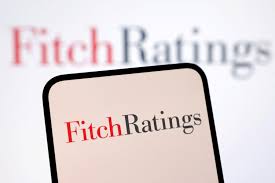Fitch Ratings has downgraded the credit rating of the African Export-Import Bank (Afreximbank) by one notch to BBB-, just above junk status, citing growing credit risks and weak risk management practices. The downgrade, announced on Wednesday, comes with a negative outlook, meaning the bank is now under close watch for further rating cuts.
According to Fitch, Afreximbank’s exposure to financially distressed countries like Ghana, Zambia, and Malawi is raising questions about the safety of its loan book. The rating agency expressed concern over the bank’s lack of clarity in reporting loan performance, especially when compared with other multilateral development banks. Fitch said its decision was also influenced by the risk that some of Afreximbank’s loans may be included in sovereign debt restructurings.
Fitch estimates that the bank’s non-performing loan (NPL) ratio stood at 7.1 percent by the end of 2024. However, Afreximbank itself reported a much lower figure of 2.44 percent for the first quarter of 2025. This discrepancy, according to Fitch, stems from the bank’s use of International Financial Reporting Standards (IFRS 9), which allow for flexibility in how NPLs are reported. Fitch argued that this approach reduces transparency, making it difficult to assess the real credit quality of the bank’s assets.
“The revision of risk management to ‘weak’ reflects low transparency in the recent reporting of loan performance relative to multilateral development bank peers,” Fitch said in its statement. The agency added that the way Afreximbank reports its loans does not align with Fitch’s stricter definition of non-performing loans.
A lower credit rating usually leads to higher borrowing costs for the issuer. For Afreximbank, this means it could become more expensive to raise funds, which may limit its ability to offer affordable financing to African countries and businesses. The downgrade also raises questions about the bank’s strategy and how it positions itself as a multilateral lender with “preferred creditor status,” meaning its loans should be excluded from sovereign debt restructurings.
Fitch warned that if Afreximbank’s debts are eventually included in ongoing restructurings in Ghana, Zambia, or Malawi, this could further damage the bank’s reputation and lead to another downgrade. “This would put pressure on our assessment of the bank’s policy importance and heighten the risk associated with its strategy,” the agency said.
Afreximbank, whose shareholders include several African governments and private investors, has become a vital lender across the continent. It has provided much-needed liquidity to many African nations, especially when access to international capital markets has become difficult. The bank also played a key role during the COVID-19 pandemic and has continued lending at a time when many rich countries are reducing aid and concessional loans to Africa.
However, the debt crises in Ghana, Zambia, and Malawi have forced investors and analysts to closely examine the bank’s loan terms. Questions have been raised about whether Afreximbank’s loans are concessional enough to be protected from restructuring, like those from the International Monetary Fund (IMF) and World Bank.
Fitch said the bank’s business profile remains at “medium risk,” but the weak loan reporting practices and ongoing debt disputes are negatively affecting that profile. The agency also highlighted a recent report from Reuters that revealed Afreximbank had informed investors that Ghana was “up to date” on its loan repayments. However, Ghanaian officials publicly stated that the country had not made debt service payments for two years and was seeking to restructure its debt with the bank.
This contradiction further highlights the transparency concerns raised by Fitch. The agency said that if Afreximbank is drawn into any formal debt restructuring processes, it would likely revise its view on the bank’s importance as a policy institution and reassess its exposure to sovereign risk.
So far, Afreximbank has not officially responded to the downgrade or the concerns raised by Fitch. But analysts say the bank must address these transparency and risk issues quickly to maintain investor confidence and protect its ability to support African economies.
